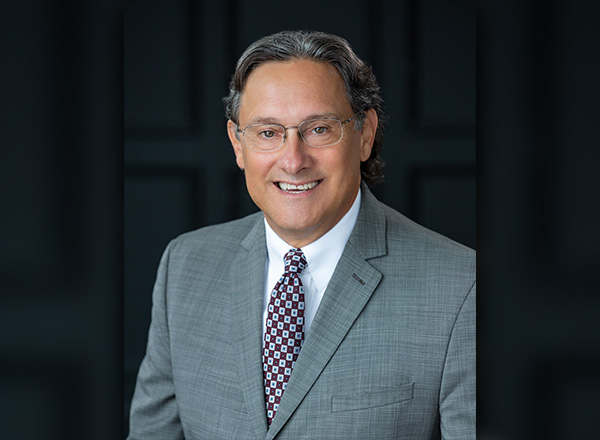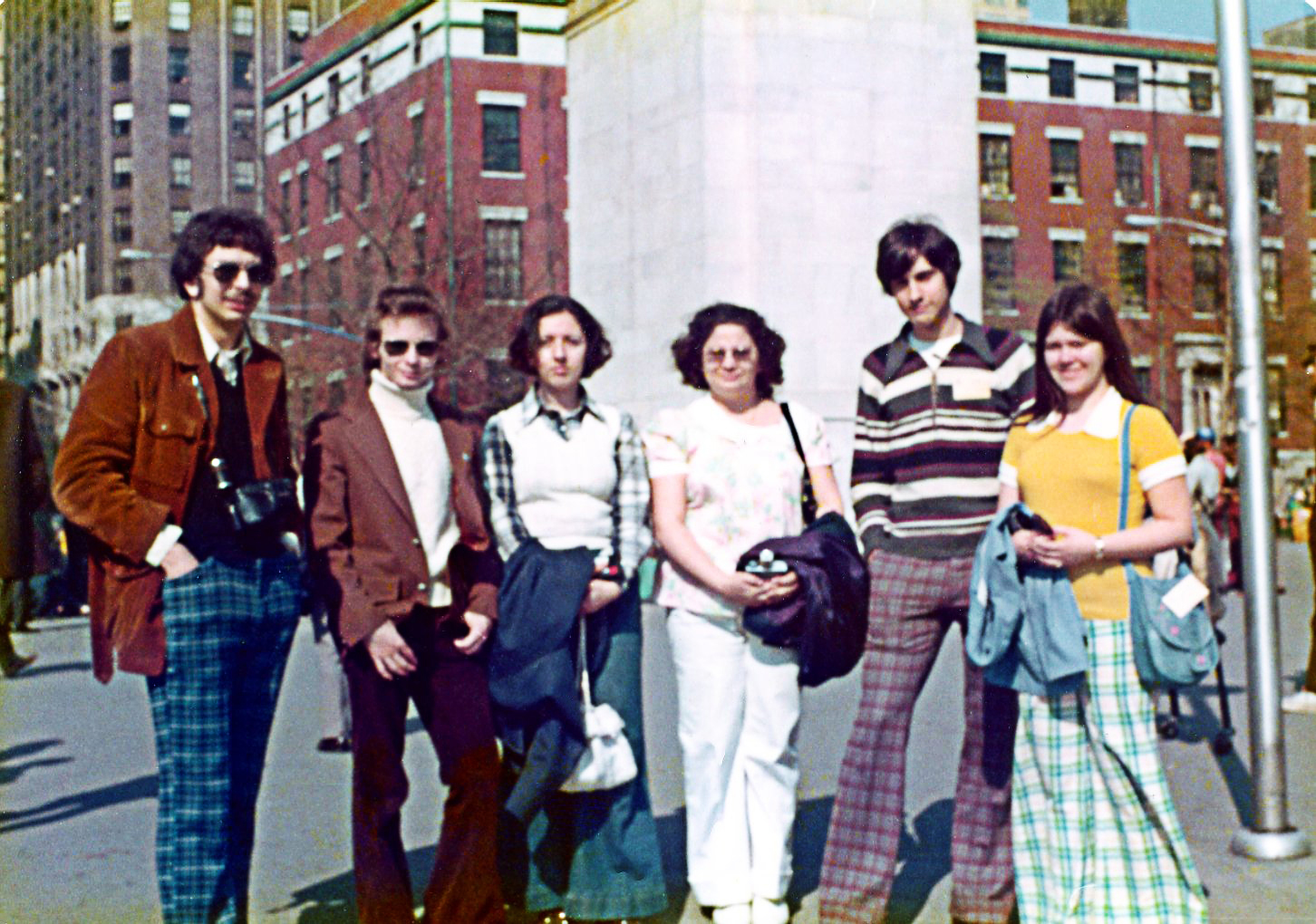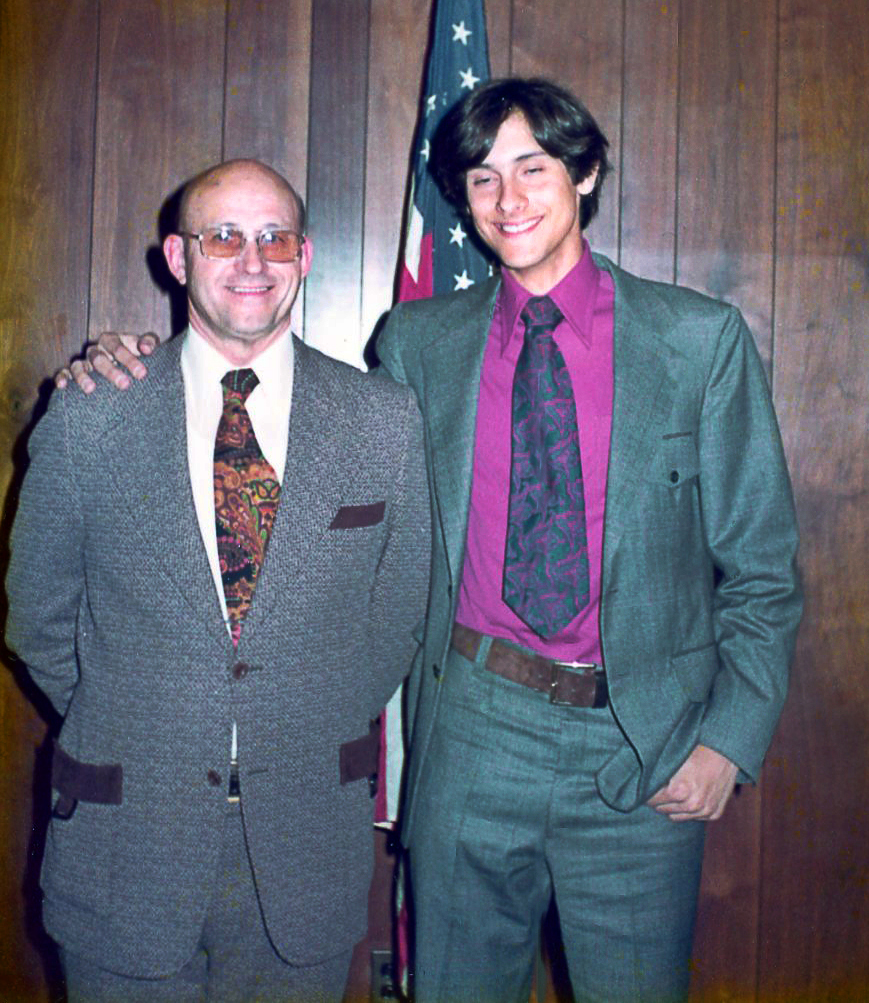HawkStrong: a long and rewarding legal career began at HFC

One lesson Carlo J. Martina, an attorney in private practice in Plymouth, learned was that your history is always a part of who you become. He's proud that HFC is part of that story.
“I have nothing but fond memories of the College," he said. "Those were some of the greatest, formative times in my life."
A strong desire to serve his country
A Detroit native, Martina lives in Brighton with his wife of 22 years, fellow attorney Marie Pulte. His eldest son Adam is the senior policy advisor to Senator Mark Warner in Washington, D.C. His youngest son Justin is a managing director at investment firm Pretium Partners, LLC in Manhattan. His eldest stepdaughter Melanie is a science teacher in Macomb County. His youngest stepdaughter Carly is working on her doctorate in anthropology at Wayne State University. He is also the proud grandfather of Grant Martina, 18 months.
The sole surviving son whose parents were immigrants, Martina graduated from Aquinas High School in Southgate in 1971. His father served in the Army Air Corps during World War II, so it seemed natural for Martina to enlist in in the Air National Guard. He was 17 at the time and finished basic training at Lackland Air Force Base in Texas before turning 18.
“Even though I was opposed to the Vietnam War, I was not opposed to serving my country,” said Martina.
In 1972, he completed Air Intelligence Operations training at Lowry Air Force Base in Colorado. Martina was an air intelligence operations specialist for the 127th Tactical Air Command from 1972-74. He became an air intelligence operations specialist for the 191st Air Defense Command, Fighter Interceptor Group at Selfridge Air National Guard Base in Mt. Clemens from 1974-77. He rose to the rank of staff sergeant and received an honorable discharge in 1977.
College ignited “a fire in the belly”
During his time in the military, Martina attended HFC (then Henry Ford Community College), where he was an honors student and studied political science and psychology. Martina was very active during his time at HFC:
- He freelanced for The Ford Estate, the official student newspaper that preceded The Mirror News.
- He was a DJ for WHFC before it was renamed WHFR.
- He was a member of the debate team.
- He was a member of the ski club.
- He was a member of the HFCC Model United Nations Committee that won the Outstanding Delegation Award for the UN Economic and Social Council, which was held in New York City in 1973.
- He was the chairman of the HFCC Model United Nations Committee that won the Outstanding Delegation Award for the UN Economic and Social Council, which was held in New York City in 1974.
- He was a member of the Associated Student Government and later became vice-president.
- He formed the parking decal committee to establish adequate parking.
- He was co-chair of the Judiciary Committee.
- He was co-chair of the committee that brought the first public concert to the College.
Arranging the College’s first concert
Martina has fond memories of organizing the first public concert ever at the College.
“We were trying to get Jim Croce, but he died in a plane crash in 1973 before we could book him,” recalled Martina. “We wanted to prove that this community college could get things done. So we went big and tried to book (comedian) George Carlin and the Eagles, but they wanted a percentage of the profits that we couldn’t guarantee.”
He continued: “Time was running out, but we wanted something big, so we booked the national ballet company of Mexico that was touring in the United States at that time and performing Fiesta Folklorico. Besides advertising the concert locally, Detroit radio personality J.P. McCarthy gave the College’s efforts free coverage on WJR. McCarthy held a contest to find the oldest Mexican couple in Detroit to promote the concert. He had so many people calling in.”
The concert was a huge success and well-received by the community and the College administration, according to Martina.
“Everybody had a fire in their belly back then,” he recalled. “It was great. We were hell-raisers who were trying to make things happen at the College, trying to make the campus more inclusive. We redrafted the Student Rights and Responsibilities Handbook and the Student Council Constitution. We brought in Governor Bill Milliken, senators, all sorts of people to speak. We started the Spring Festival. We formed the decal committee for students to have adequate parking on campus because students from other schools were stealing our parking spots.”
Good relations with the College’s top administrators
Martina said he and many of his peers, including his best friend and student council president, Chick Hirshberger, had excellent relationships with key College administrators, including the late Dr. Stuart Bundy, who served as president of the College from 1972 to 1989, and the late Stanley L. Vihtelic, who served as the College's Director of Student Activities from 1965 to 1985.
“Dr. Bundy could form empathetic relationships with students and understood the needs of students,” said Martina. “One reason we made so much progress was that we were lucky to have an administration that nurtured it. It was a mutually beneficial, symbiotic relationship, especially since we were bringing attention to the College in a good way.”
He continued: “(Bundy) had a pretty good idea what this College could do, and while we didn’t always agree with the administration, we were able to find common ground and worked with the administration toward our goals in a dignified and respectful way. That method of effectively working with others, even though we did not always share the same goals or perspectives, started right here at the College. I really enjoyed those times.”
The value of education
HFC taught Martina the value of education.
“There were very few colleges where a young man or woman just starting out in life could have as many educational and extracurricular opportunities available to them in an environment conducive to making friends and forming relationships as HFC,” said Martina. “In many college environments, the ability to know about, much less access such opportunities, is missing. Here, it was laid out on a platter for you – ‘Here are the things that you can do.’ I learned the value of finding all the resources available and then pursuing them.”
Martina transferred to the University of Michigan in Ann Arbor, where he was a James B. Angell Scholar. He graduated from U-M with high distinction in 1976, earning his bachelor’s degree in general studies, focusing on political science and organizational psychology.
“My GPA went up at U-M! It was actually tougher (at HFC) than U-M, in a good way. I received a great foundational education at the College with teachers who were available and who helped us and encouraged us to understand the material presented in class,” he said.
Upon graduating from U-M, Martina enrolled at Wayne State University Law School in Detroit. There, he was a member of the Law School Student Board of Governors and subsequently became president. He also served as a student representative for the Wayne State Law School Admissions Committee. Martina earned his juris doctor in 1979. He has been a practicing attorney for more than 42 years.
Opening his own law firm
Initially, Martina planned to go into labor law. Around that time there were few labor law jobs. He began his legal career for a general practice law firm, doing personal injury and partnership dissolution. He eventually found his way into practicing divorce and family law. There were similarities between divorces and partnership dissolutions, he pointed out.
In 1983, he founded the Law Offices of Carlo J. Martina, P.C., which specializes in divorce, child custody, and child support cases. He explained why he went into business for himself.
“I coached my sons in soccer. I needed Wednesday evenings and Saturday mornings off. I wouldn’t be able to do that at a big law firm where you’re expected to work evenings and weekends. I could’ve gotten a $100,000 increase in pay,” explained Martina. “But I recognized that I would have only one opportunity to be there for my kids, which meant a lot to me, and I wanted to take it. I decided I was making a decent living and went in business for myself. I had to if I wanted to be involved in my kids’ lives. I don’t regret it one bit. It turned out well."
A need for ethical justice
As a member of the legal profession, Martina has always felt there was a need for ethical justice.
“I’ve been before the Michigan Supreme Court on behalf of the Family Law Section of the State Bar of Michigan on the issue of ethics,” said Martina. “I wrote the chapter on developing your practice and ethics for the two-volume set of Michigan Family Law published by the Institute of Continuing Legal Education.”
Martina has held numerous positions on the Family Law Section Council Executive Board for the State Bar, including chairman. He is the former president of the Collaborative Practice Institute of Michigan and the former president of the Wayne County Family Law Bar Association (WCFLBA).
“I’ve always felt that a lawyer should give their clients advice like they would give to their own family,” said Martina. “You listen to and focus on their legitimate needs. You may not always be able to tell them what they want to hear, but you must always tell them what they need to know so that they can make intelligent decisions without engaging in needless acrimonious and usually fruitless litigation. A lawyer must never suggest a course of action, or manufacture issues to litigate because it’s in their own financial self-interest.”
Collaborative dispute process
Martina’s firm represents parents and grandparents in family law cases in Wayne, Oakland, Washtenaw, and Livingston counties. While skilled at using traditional litigation strategies, Martina is a firm believer in early-stage mediation and the use of the collaborative process to employ the least adversarial and most cost-effective method to represent and protect his client’s best interests, while trying to promote a respectful working relationship between the parties -- especially if there are minor children involved.
“I believe the collaborative dispute process is the most ethical and respectful way to settle family law disputes,” he said. “It’s the least acrimonious path and allows people to co-parent their kids amicably after a divorce. I think that in the majority of cases, it’s the best procedural alternative to the traditional litigation process. It’s not right to put people through that hell unnecessarily. Only if necessary and after discussions with his client would I pursue a more aggressive – though always ethical – legal strategy."



